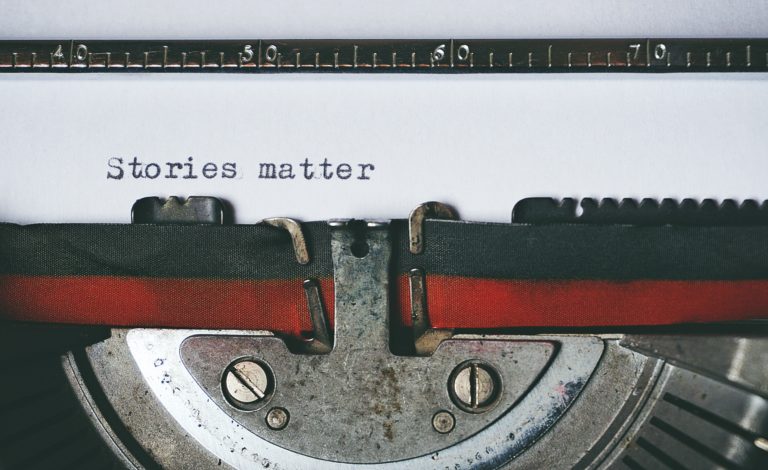Stories for climate change are stories and poems co-created by scientists, academics, health professionals, activists, writers, and artists to invite audiences to engage and explore how we can use the power of storytelling by interweaving facts, discoveries, and emotions, to encourage the exploration of novel possibilities for a future that is both habitable and sustainable. By doing so, stories transform into a medium through which we can humanise our climate and ecological crises and the stories act as a driver for positive change, fostering a world that is sustainable, healthier, and socially just. The stories have been translated into various different languages and given life through artistic expressions including theatrical performances, large-scale murals, music, recordings, poetry trails, live storytelling events, artwork created by children and artists, and digital visualisations.
Exeter’s international, interdisciplinary team of experts have pioneered a new way of communicating climate science which engages people intellectually and emotionally in the lead up to, during and after major international negotiations to fuel the drive to respond to the call to action. Their purpose is to use COP platforms to communicate new climate narratives including science, health and the arts as well as to build strategic partnerships to raise awareness about the urgent need for climate action amongst children, young people, policy makers and the general public. To achieve their purpose, they co-produce and lead creative output led by an anthology of poems and climate stories. This initiative has brought the arts, education and science together, combining their global reach with such major local impact across the world, reaching over 28 million people through the conferences of COP26 (One Chance Left for COP26) and COP27 (We Still Have a Chance). Both previous sets of stories have already reached policy makers, ministers, educators, experts, children and non-traditional audiences and plans are underway for an ambitious COP28 project. The stories don’t just need to be written words however, as they have also been adapted into theatrical performances, visual art and digital recordings.
Why storytelling?
Stories help show and not just tell. With this project, people can bring their different knowledge, perspectives and experiences, as well as their imagination. People can combine facts, feelings and findings to help facilitate climate change activism. When performed at COP26, the stories brought the Science Pavillion alive in a way that it hadn’t been before. After some quite heavy presentations and lots of information, they provided an engaging and energising take on climate change awareness.
The Climate Change stories are underpinned by pioneering methodology:
– Connect: Design, guide and facilitate virtual creative writing workshops that connect science, health and the arts. Also underpinned by COP aims, themes and goals.
– Collaborate: Give space for participants to experiment with their imagination and ideas.
– Communicate: Share the 12 published poems and stories which became the bedrock for translation into new narratives and art forms. This means that they will reach and engage diverse audiences to accelerate climate change awareness and action.
What has grown from the project?
One Chance Left was first finalised as a digital and printed book. Then, a poetry trail inspired by the poems was set up in Exeter and Falmouth, One Chance Left spoken poems accompanied by BBC Nature sounds, a published One Chance Left Collective on Spotify, and a short film. The stories were even presented at COP26! Inspired by the success of One Chance Left, We Still Have a Chance grew into a bigger group of people working together, engaging with what is happening in Egypt. Connecting the UK with Egypt through climate stories with a wide range of people and partnerships involved such as the British Embassy Cairo, RAMM, Met Office and British Council. We Still Have a Chance was performed at COP27 as a theatre performance. This year’s stories 12 Poems For 12 Days of COP28 are getting bigger and bigger. The main aim for this year’s poems is to get as many people as possible involved in climate change activism. This will be achieved in multiple different ways. Theatre productions from around the world will share performances using sustainable theatre art making practices to do so. There is also going to be a partnership with coastal schools in the UK and UAE, so that children can write their own stories and poems and speak with their own voices, resulting in a bilingual anthology that will be launched at COP28. Another exciting project will be headed by BIMM where students will translate the stories into music.
These climate change stories highlight the importance of bringing solutions to life and translating and sharing discoveries and research. Stories give us the space to imagine and create new possibilities. To connect on all levels, past present and future – something that is crucial with encouraging climate change activism.
For more information, check out https://greenfutures.exeter.ac.uk/one-chance-left/ https://greenfutures.exeter.ac.uk/we-still-have-a-chance/

